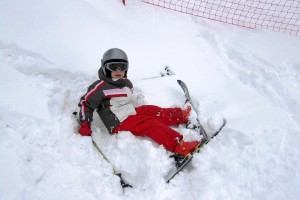Joshua is reclined on the red couch in his blue snow boarder pyjamas.
“Joshua,” I say, “Would you like to go skiing this weekend?”
“No,” he says “I don’t.”
“Why not?” I ask.
“Because last time I fell and it hurt.”
“But Joshua, it doesn’t hurt anymore, does it? And you know, falling is learning.”
“Falling is learning…?” he repeats. And then he smiles, and tells me that he does want to go skiing.
The idea that when we fall, we learn is also helpful when thinking about relapse while in a process of recovery from addictive behavior.
Addiction may be defined as “any repeated behaviour, substance-related or not, in which a person feels compelled to persist, regardless of its negative impact on his life and the lives of others” (Mate, G., In the Realm of the Hungry Ghosts, p.214.)
When we treat relapse as a bump in the road and not the final destination on our unique journey of recovery, we are more likely to be motivated to move forward. Understanding that our recovery journey is not linear, and treating relapse as an opportunity to learn self acceptance, and acquire much needed skills and understanding, will help us to resist addictive behaviour in the future.
The feeling of relapse can be so painful, that the pain takes over and then gets in the way of our abiity to study, “What are the conditions that led me to relapse?” Irrational beliefs like “I knew I couldn’t do this”, “I fail at everything!”, “There’s no point in trying to stop”, lead to feelings of frustration, disappointment, and a profound sense of failure.
Well known writer and physician, Gabor Mate, states, “Don’t ask why the addiction, ask why the pain?”. To understand addiction we need to understand the conditions that lead to it.
Addictive behavior is often a solution that temporarily alleviates overwhelming emotional or physical pain. Bruce Alexander, author of the Globalization of Addiction, writes that in order to understand addiction we need to see it as resulting from a loss of psychosocial integration, which he refers to as “dislocation”.
When a person lacks stable emotional relationships, a sense of community, purpose, a positive sense of self, and/or connection with nature and the divine, addictive behavior often becomes a form of self medication. For many people, addiction is a way to cope with the pain caused by a lack of belonging. In the case of many First Nations people, the root causes of addictive behavior lie in circumstances which were beyond their control: colonization, loss of family structures, cultural and spiritual dislocation, poverty, and intergenerational trauma.
In SMART Recovery® relapse is opportunity to work even harder to enhance motivation, learn to cope with urges, manage thoughts, feelings and behavior, and cultivate a healthy, balanced life. These four points are the pillars of an approach to addictive behavior that is self empowering, and based on the latest scientific evidence.
Based on the principles of Rational Emotive Behavior Therapy (REBT), SMART provides participants with opportunities to break down the ABC sequence in which a consequence, such as not wanting to go skiing again, is seen to result from an irrational belief (such as “I’m going to fall down every time I ski”, or “I’m not a good skier because I fell down”) to the antecedant event which was falling down.
Our thoughts and beliefs influence our emotional state, and our behavior. Negative beliefs about ourselves often lead to behavior that reinforces those negative beliefs, and keeps us trapped in a way of being that doesn’t align with our values, goals and the future we aspire to create.
Addiction is all in our brains. The limbic system is referred to as our brain’s reward centre. It responds to chemical messengers released by our nervous system which are called neurotransmitters. We have at least 100 different types of neurotransmitters which pass signals from one neuron to the next.
The most important neurotransmitters are the ones that are key to our survival and success. The problem arises when our addictive behavior hijacks our brain chemistry by messing with our neurotransmitters. The pleasurable memory associated with using, and the anticipation of reliving it again, amplify the urge for instant gratification which can be overpowering, and often eclipses our awareness of the short and long term negative consequences.
When we understand the science behind addictive behavior, and acknowledge the larger context that cause dislocation and addiction, we are empowered, and can acquire the skills and experience that support us to cultivate the healthy, balanced, and rewarding lives we envision.
References:
Alexander, B. (2010). The Globalization of Addiction: A Study in Poverty of the Spirit. Oxford University Press.
Mate, G. (2008). In the Realm of Hungry Ghosts: Close Encounters with Addiction. Vintage Canada.
Mate, G. What is Addiction, https://www.youtube.com/watch?v=T5sOh4gKPIg
The Chemistry of Addiction, Sci Show with Hank Green, https://www.youtube.com/watch?v=ukFjH9odsXw
SMART Recovery, Self Management Recovery Training, http://www.smartrecovery.org/

